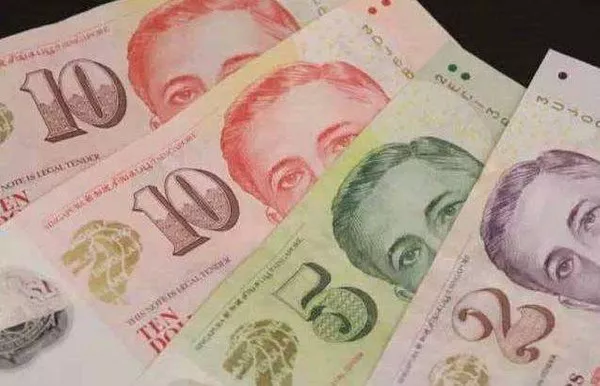Switzerland, known for its picturesque landscapes, efficient infrastructure, and rich cultural heritage, is a popular destination for travelers from around the world. With its unique position as a global financial hub and a tourist hotspot, Switzerland attracts people for various purposes, including tourism, business, and investment. One of the most frequently asked questions for anyone planning a trip to Switzerland is: “What is the best currency to use?” In this article, we will explore the various currency options and offer recommendations to help you make the most of your Swiss journey.
Swiss Franc (CHF) – The Official Currency
The official currency of Switzerland is the Swiss Franc, denoted as CHF. It is the most widely accepted currency throughout the country and is the default mode of payment in most transactions. While the Swiss Franc is the ideal currency to use in Switzerland, there are several factors to consider when handling your money during your visit.
Benefits of Using Swiss Francs:
Widely Accepted: Swiss Francs are accepted everywhere in Switzerland, making it the most convenient option for tourists. From restaurants and hotels to shops and public transportation, using CHF is straightforward.
Exchange Rates: When using Swiss Francs, you don’t have to worry about unfavorable exchange rates or transaction fees, as you might encounter with foreign currencies.
ATMs: ATMs are easily accessible in Switzerland, and most of them dispense Swiss Francs. This convenience allows you to withdraw cash as needed during your stay.
Local Experience: Using the local currency enhances your experience, as you’ll have a true sense of Switzerland’s economic landscape. It’s also the best way to interact with locals and enjoy a more authentic travel experience.
Cautions When Using Swiss Francs:
Banknotes: Swiss Franc banknotes are available in various denominations, and it’s recommended to carry a mix of smaller and larger notes. While larger notes are accepted everywhere, smaller denominations may be more practical for small purchases and tipping.
Credit Cards: Credit cards are widely accepted in Switzerland, but it’s advisable to carry some cash, especially in remote areas where card payments may not be as readily available.
Other Currency Options
While Swiss Francs are the preferred choice for payments in Switzerland, it’s worth noting that some establishments in tourist-heavy areas, such as hotels, may accept major foreign currencies like the US Dollar (USD) and Euro (EUR). However, using these foreign currencies may not be the most cost-effective option due to less favorable exchange rates and possible service fees.
It’s important to consider the following factors when contemplating the use of alternative currencies:
Exchange Rates: When making a payment in a foreign currency, the exchange rate offered may not be as favorable as the rates available at banks or exchange offices.
Service Fees: Some establishments may charge additional service fees for processing payments in foreign currencies.
Informal Economy: While the Swiss Franc is the currency of choice for everyday transactions, it is crucial to remember that some small, informal vendors or markets might not accept foreign currencies at all.
Banking Services: If you choose to use your credit card for transactions, check with your bank or credit card company regarding their foreign transaction fees and exchange rates.
Currency Exchange
If you decide to bring foreign currency to Switzerland and exchange it for Swiss Francs, you’ll find a variety of options available. These include banks, exchange offices, and even ATMs, which often provide competitive exchange rates. However, it’s essential to be aware of potential fees and commissions that can impact the overall value of your exchanged money. To ensure the best exchange rate, compare rates from different sources, including your home bank, before making any currency exchange decisions.
Currency Exchange Tips:
Timing: Keep an eye on currency exchange rates before your trip and aim to exchange your money when rates are favorable.
Exchange Services: It’s a good idea to compare rates and fees at different exchange offices and banks to find the best deal.
Home Bank: Contact your home bank to inquire about their partnership with Swiss banks. Some banks offer more favorable exchange rates to their customers.
ATMs: ATMs in Switzerland are generally well-stocked with Swiss Francs. However, be aware of potential fees for using foreign cards in ATMs and choose ATMs affiliated with major Swiss banks for the best rates.
Conclusion
Switzerland is a remarkable destination that seamlessly blends modernity with tradition. To make the most of your visit, it’s advisable to use the official currency, the Swiss Franc (CHF). This choice provides you with convenience, transparency, and a more immersive experience while exploring the country. While some businesses in tourist-heavy areas may accept foreign currencies, it is often less cost-effective and may not offer the same level of acceptance.
When handling money in Switzerland, remember to keep an eye on exchange rates, and consider exchanging your currency at reputable banks or exchange offices for the best value. Additionally, it’s wise to inquire about foreign transaction fees with your home bank or credit card company if you plan to use your cards for payments.
Ultimately, your choice of currency can significantly impact the value and convenience of your trip to Switzerland. By understanding the currency options and exchange processes, you can ensure a more seamless and cost-effective journey while enjoying the breathtaking landscapes, rich culture, and vibrant cities that this beautiful country has to offer.


